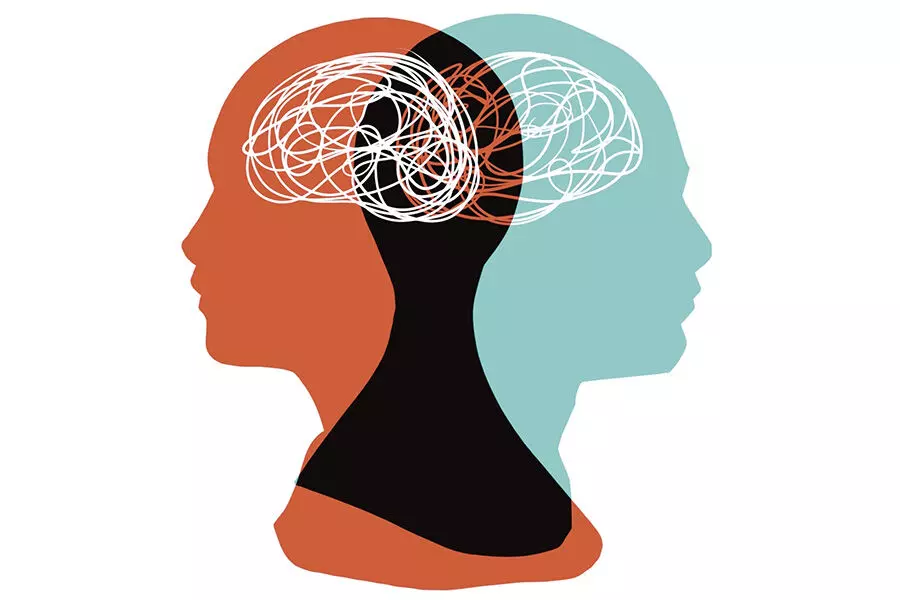
Mental health: Facets, challenges, and stigma
text_fields"If we start being honest about our pain, our anger, and our shortcomings instead of pretending they don't exist, then maybe we'll leave the world a better place than we found it," – Russell Wilson.
There exists a world inside us. A world that only the individuals themselves have access to. Unfortunately, there are also times when that access gets denied, making the person deal with complicated emotions. The rhythm of life that you believe is in control, might experience fissures.
This, known as "mental health" might seem a bit difficult to interpret initially. There were times in the past when people have even termed this "madness." Mental health, which is equally important as your physical health, needs attention, just like how we run for help when realizing that we are in pain.
Here are some of the mental health disorders that are seen among the growing population.
Depression
Depression is not sadness. The misinterpretation of the illness has often reduced its seriousness. According to Healthline, a health information provider, depression affects you when your sadness interrupts day-to-day life. Sadness is more of an emotion, whereas depression is an illness. Some of the common symptoms of depression include constant feeling of sadness, irritability, fatigue, loss of interest, feeling of worthlessness, and thoughts of suicide. It can be an after-effect of childhood trauma, family history of mental illness, lack of family support, or can even be the possible side effect of some medications.
Anxiety disorder
We normally get anxious about uncertain events in our life. But if constant episodes of anxiety trigger and affect your day-to-day life, then they can be termed as an anxiety disorder. Constant anger issues, restlessness, difficulty in concentrating and sleeping, etc. are some of the symptoms of anxiety disorders. Obsessive-Compulsive disorder is one of the most common anxiety disorders seen among individuals. Individuals with the condition will be extra precautions about cleanliness and arranging items in a particular pattern.
Eating disorders
Eating disorder occurs in a person when they are not in control of their food intake. Binge eating, Bulimia nervosa, and anorexia nervosa are some of the eating disorders that are seen in this generation.
Binge eating has been a trend among individuals since the pandemic. There has been a significant increase in the habit where the individual lacks control of their intake of particular food items. In conditions like Bulimia nervosa, the individual will feels more insecure about gaining weight followed by eating a lot. So, the person will try to take out food from their body either by vomiting or taking in laxatives. Those with anorexia are also concerned about weight gain. Hence, they intentionally reduce food intake even if they are thin.
Bipolar mood disorder
Individuals with bipolar mood disorder tend to experience mood swings ranging from manic to depressive episodes. Their episodes can last from days to months. The individual will be at their highest energy levels during the manic episode, whereas they feel the lowest with a lack of motivation and will feel suicidal during the depressive episodes.
Schizophrenia
A combination of genetics, altered brain chemistry, and environment play a significant role in individuals with schizophrenia. Here, the person's ability to think and behave is affected, causing them difficulty in distinguishing their thoughts from reality. Delusions, hallucinations, disorganized speech, and behaviour are some of the early symptoms of schizophrenia.
Methods of treatment: psychology or psychiatry?
Seeking help has always been a great tool to reduce certain irregularities associated with the illness.
But if you are not able to find comfort in talking to people about the kind of emotions that you are enduring, then it is signalling you to seek professional help which will be initiated either with the help of a psychiatrist or psychologist.
What is the difference between a psychologist and a psychiatrist?
When psychologists analyze the social and cognitive factors that determine the actions and reactions of the individual, psychiatrists use psychotherapy to help clients. The word psychiatry by itself is the "medical treatment of the soul". Most psychiatrists are called "doctors", whereas psychologists are called 'therapists.'
Both psychologists and psychiatrists can diagnose mental illness. You can visit either of them for treatment. However, it is only the psychiatrist who is allowed to prescribe you medicines. Psychiatry is mostly prescribed for bipolar disorder and schizophrenia, as they require medication.
Talk therapy with a psychologist might aid you to get tools to deal with other disorders like depression and anxiety without medication. Cognitive Behavioural Therapy (CBT) is one of the most common therapies performed. This method helps you in identifying negative or unhelpful thoughts and behavioural patterns.
But if therapy alone is not able to heal you, visiting a psychiatrist should be the next immediate step to be chosen.
How can we help?
Most of us rely on friends or family for emotional support. As listeners, certain traits might inspire the speaker to vent out their emotions and move ahead with a positive light to life. You might not necessarily need to have a solution to every problem discussed. Yet, a non-judgemental approach might help the other to let loose their burden for a while.
Make sure you listen, empathize, and reassure the other that things will be alright. All emotions are valid and none of them should be taken lightly. If it is serious, make sure to insist the other seek professional help.
There are multiple stigmas surrounding mental health illness. Although there is slight progress in individuals' response to the circumstance that challenges emotional balance, the reluctance of people to visit a therapist or seek medication is still prevalent. Hence, it is integral to understand, empathize, and make use of the services provided to their fullest.
Kiran: India's first National Mental Rehabilitation Helpline
Launched in 2020, the helpline becomes one of the prominent initiatives of government geared for suicide prevention. The helpline number operated through 25 institutions in 13 different languages is coordinated by the National Institute for the Empowerment of Persons with Multiple Disabilities (NIEPMD, Chennai) and the National Institute of Mental Health Rehabilitation (NIMHR, Sehore, Madhya Pradesh).
The helpline number 1800-599-0019, also known as "Kiran" is accessible to citizens 24/7 times a day.
Psychological support, distress management, first-aid, and psychological crisis management are some of the services provided by the helpline. Make sure to connect to their services whenever you feel suicidal or know someone in distress.























